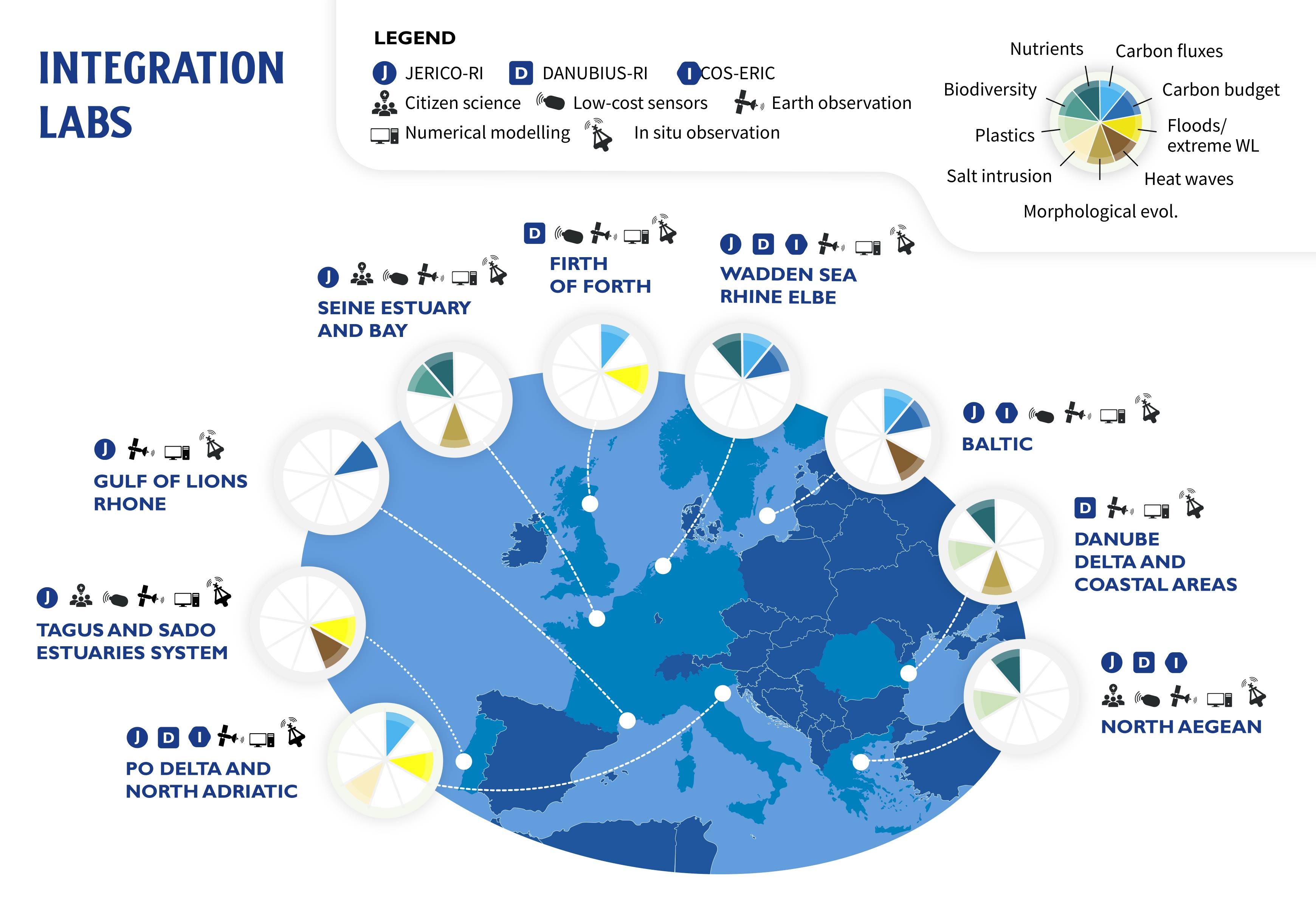LandSeaLot, observing land-sea interfaces in Europe
The European LandSeaLot project will establish an observation strategy for European land-sea interfaces, which play a major role in improving biodiversity, CO2 capture and climate resilience. A range of scientific expertises will be combined with stakeholder recommendations, establishing a picture of the potential of land-sea interfaces. Deltares is coordinating this research.

The European land-sea interfaces are home to densely populated areas and important economic activities. These areas are also facing the inevitable challenges. Striking a balance between conflicting interests and activities such as fishing, aquaculture, energy production, tourism and transportation is important for the delicate ecological balance that, in turn, is important for the habitability of the areas in question.
Important to establish a basis for decisions
The production, and therefore the use, of resources here is expected to increase dramatically: by up to six times for food and forty times for energy by 2030. Observations of both saltwater and freshwater systems in these areas are important to establish a basis for the relevant decisions, particularly in the context of the EU mission ‘restore our Ocean and Waters by 2030’.

Potential in the picture
The researchers of the LandSeaLot project want to establish a clearer picture of the potential of the land-sea interface. This cannot be achieved through research alone. They will therefore be teaming up with organised stakeholder groups in a range of European areas so that this knowledge will actually be used. In this way, the project combines field measurements and citizen science with satellite and field observations and modelling. LandSeaLot will therefore generate new observational data and integrated information. Those data will be made available by the European platforms in place such as: the European Marine Observation and Data Network (EMODnet), Copernicus services and the observation component of the Digital Twin of the Ocean (EDITO, ILIAD).
It is incredibly important that, precisely at this time, we in Europe share our knowledge about the land-water interface. In this way, the results of LandSeaLot can boost sustainable policies and the management of these areas in Europe. I am proud that we established connections with citizen science and other stakeholders in nine locations from the outset: the Black Sea, the Aegean Sea, the Mediterranean Sea, the Atlantic Ocean, the North Sea and the Baltic Sea. In ‘Integration Labs’, we will be testing proposed improvements with them.
Jos Brils, a Deltares expert and coordinator of LandSeaLot:
'LandSeaLot: Land-Sea interface: Let’s observe together!' is a Research and Innovation action (RIA) funded by the Horizon Europe Work programme topics addressed: HORIZON-CL6-2023-01-11 : Reducing observation gaps in the land-sea interface area. Start date: 01 February 2024. End date: 01 January 2028.

